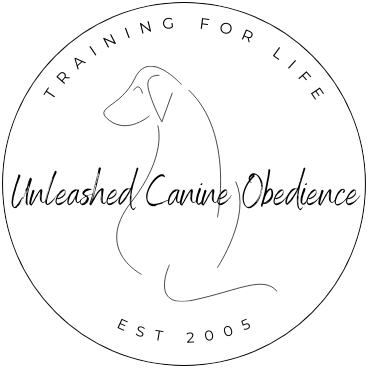Sleep: Is Your Dog Getting Enough?
We often receive training inquiries from people who are very concerned about their puppy’s nipping and biting, or perhaps their adult dog is excessively chewing on inappropriate things.
Another common thing that leaves owners feeling frustrated is their puppy or dog’s inability to calm themselves down even if their dog has had plenty of exercise and activity.
And of course, these behaviors usually require some training to modify. But many times, I will discover their dog or puppy is not getting nearly enough sleep. And the owners are seeing the results of that in their pup’s behavior.
How important is it?
When looking at dog behavior, hyperactivity, frequent bouts of whining or crying, an inability to relax on their own, excessive nippiness, low tolerance to stress, and even aggressive behavior can all be the result of sleep deprivation or sleep deficiency.
Proper sleep helps your dog’s brain work properly.
While the body sleeps, the brain is forming new pathways to help with learning and memory creation. Healthy amounts of sleep help enhance learning and problem-solving skills, improves attention, and the ability to make good decisions.
Sleep deficiency actually alters activity in some parts of the brain. This is also true for us as well!—sleep deficiency has been linked to a number of negative side effects in humans too.
For example, puppies who are sleep deprived may have problems getting along with others. They also will tend to have difficulty problem solving or lack resiliency with changes in their environment. They may get frustrated easily, have exaggerated mood swings, or lack motivation altogether.
How much sleep does your dog or puppy actually need?
Animals need more sleep early in life, when they’re growing and developing, just like us! For example, human newborns may sleep more than 16 hours a day and even preschool-aged children need to take naps during the day. Sleep is important for your dog or puppy’s overall health, the regulation of hormones as well as the ability to ward off infection. Even kidney and heart issues can develop from long term sleep deficiency!
And remember…
Quality is just as important as quantity here—having quiet spaces where they can properly experience all stages of sleep is an important ingredient in the good sleep health formula!
If your puppy or dog has been experiencing sleep deficiency, once you create a good sleep schedule, you should see the amazing results proper sleep gives your pup within a week.
Many people can’t believe the positive changes they see in their puppy after a week of good sleep!
Anecdotally, when a dog or puppy visits us for one of our Board and Train Programs and they start getting the proper amount of sleep every day, the results are absolutely wonderful to see. We start to see dogs that are able to regulate their emotional states more easily and make better decisions on their own with less management from us.




